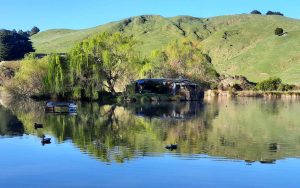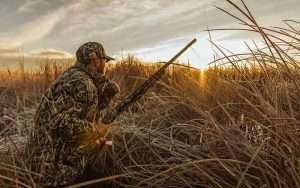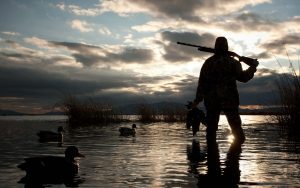Introduction
Duck hunting is an exhilarating outdoor activity that attracts hunters from all walks of life. The 2023 duck shooting season in New Zealand promises to be an exciting opportunity for hunters to test their skills and experience the thrill of the hunt. In this article, we will provide you with valuable tips to maximize your success during this year’s duck hunting season.
Scouting: Know Your Territory
Before heading out to the field, it is crucial to scout the area you plan to hunt. Understanding the ducks’ behavior, their feeding and resting patterns, and how they respond to different weather conditions can significantly improve your chances of a successful hunt. If you are unfamiliar with the area, consider booking a hunting property through OutdoorHQ. The property owners, often experienced farmers, possess invaluable knowledge of waterfowl movements and can provide insights that will give you an edge.
Ponds and Habitat: Finding the Hotspots
Not all ponds are created equal when it comes to attracting ducks. To increase your chances of success, search for ponds in close proximity to abundant food sources. While maize paddocks have traditionally been popular, modern harvesting methods often leave very little behind, reducing their effectiveness. Instead, scout for higher ground near large waterways that ducks frequent, as they offer better opportunities for success. Ducks are also drawn to cover, so look for ponds surrounded by bulrush and willows that provide protection from predators. Remember, weather conditions play a significant role in determining where the birds seek refuge, so adapt your strategy accordingly.
Decoys and Decoy Spread: The Art of Attraction
Decoys are a crucial element of any successful duck hunt. Creating an enticing decoy spread will lure ducks to your hunting blind. While there is a wide range of decoys available, not all are equally effective. Consider using a mix of newer and older decoys strategically placed throughout the hunting area. Motion decoys should be positioned in prominent areas where they can catch the attention of ducks from a distance. It is important to leave a clear landing area within shooting range while filling difficult shooting spots to maintain a natural appearance. Pay close attention to the position of the sun during sunrise and sunset, as it can affect the visibility and effectiveness of your decoy spread.
Duck Calls and Calling: Master the Art of Communication
Mastering the art of duck calling is essential for any hunter. If you are new to duck hunting, it is recommended to start with a polycarbonate or wooden duck caller with a double reed, as these are easier to blow. As you gain experience, you can progress to an acrylic caller, which offers better volume and control over more complex duck calls. Practice is key to perfecting your calling technique, and learning from experienced hunters or recording yourself and comparing the results to natural duck sounds can significantly improve your skills. Remember to adjust your volume relative to the distance of the approaching birds, reducing it as they get closer. A few soft quacks can often seal the deal. While electronic callers may be controversial among seasoned callers, they can be a helpful tool for novice hunters, adding an extra layer of realism to your setup.
Get Out There: Embrace the Adventure
The most crucial tip for successful duck hunting is to simply get out there! While it may seem obvious, many hunters miss out on opportunities by not taking action. Sitting at home will not help you shoot any birds. So, gather your gear, embrace the thrill of the hunt, and immerse yourself in the beauty of nature. Remember, hunting is not just about the end result; it is also about the experience and the memories you create. Enjoy the camaraderie with fellow hunters, appreciate the wildlife around you





Looking for more to read?
SADDLE UP SAFELY: Riding Tips for Exploring the Farm
Aug
MASTERING HUNTING PHOTOGRAPHY: Tips, Gear, and Techniques
Jul
TOP 10 ESSENTIALS: Hunting Gear for the New Zealand outdoors
Jun
BEGINNER’S GUIDE: Downhill Mountain Biking in New Zealand
Jun
HORSE TREKKING ADVENTURE TO LOCKHARTS: Exploring Canterbury’s Private Land with OutdoorHQ
Jun
DISCOVER THE JOY OF TROUT FISHING: A COMPREHENSIVE GUIDE
May
TOP TIPS FOR COOKING IN A CAMPERVAN: NEW ZEALAND ROAD TRIP
May
HUNTING WITH KIDS IN NEW ZEALAND: 7 REASONS TO GIVE IT A TRY
May
EXPLORING THE BEAUTY OF FRESHWATER FISHING WITH OUTDOORHQ
May
NZ DUCK SHOOTING SEASON 2023: LICENSES, RULES, & BAG LIMITS
May
ENHANCE YOUR DUCK HUNTING: NEW ZEALAND 2023 SEASON TIPS
Apr
THE THRILL OF HORSE TREKKING IN NEW ZEALAND
Apr
THE PERKS OF PARKING YOUR CAMPERVAN ON PRIVATE LAND IN NEW ZEALAND
Mar
DISCOVER NEW ZEALAND’S HIDDEN TRAILS: MOUNTAIN BIKING ON PRIVATE FARMLAND
Mar
OFF THE BEATEN TRAIL: HORSE TREKKING ON PRIVATE FARMS IN NEW ZEALAND
Mar
HOW TO SAFELY HUNT FOR YOUR FIRST STAG
Mar
WHY LESS HUNTING ACCIDENTS HAPPEN ON PRIVATE LAND
Mar
DO THE RIGHT THING AND REDUCE HUNTING ACCIDENTS IN NZ
Mar
BE RESPECTFUL TO FARMERS THIS ROAR SEASON
Feb
GUIDE TO BAGGING A STAG THIS ROAR SEASON
Feb
THE BENEFIT OF HUNTING ON PRIVATE LAND DURING THE ROAR
Feb
INTRODUCTION TO THE ROAR SEASON IN NEW ZEALAND
Feb
PART II: LINBURN FARM STAY, A GIFT FROM GISBORNE
Jan
PART I: LINBURN FARM STAY, A GIFT FROM GISBORNE
Jan
PART II: HUNTING THE HAWKES BAY HIGHLANDS
Jan
PART I: HUNTING THE HAWKES BAY HIGHLANDS
Dec
FILL THE FREEZER…SHARE YOUR CATCH
Nov
WILD FOOD DEGUSTATION
Nov
THE WILD VENISON BANQUET
Nov
RAYONIER MATARIKI FORESTS – CASE STUDY
Oct
WELCOME TO BLUE MOUNTAINS HUNT BLOCK
Oct
HUNTING DOESN’T HAVE TO BE DIFFICULT
Sep
FILL THE FREEZER….FOR FREE!
Sep
THE REALITY OF PRODUCING WILD FOOD
Sep
TAKE A SEAT AT THE WILD TABLE
Sep
THE FISHING PAPER & HUNTING NEWS
Jun